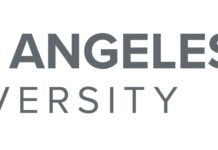New Report Offers Latest Research, Strategies for Improving Achievement of Young Hispanic Language Learners
Strategies for dual language learners must begin in preschool/primary grades
PRINCETON, N.J., Jan. 21, 2015 /PRNewswire-HISPANIC PR WIRE/ — In the drive for expanded access to high-quality early education programs, stakeholders need to understand and address the unique learning needs of young Hispanic dual language learners (DLLs), according to a new report from Educational Testing Service (ETS). The report examines the emerging research base on strategies for supporting the learning and development of DLLs in preschool and the early primary grades.
Logo – http://photos.prnewswire.com/prnh/20120110/DC33419LOGO
Enhancing Young Hispanic Dual Language Learners’ Achievement: Exploring Strategies and Addressing Challenges, was written by Debra J. Ackerman of ETS’s Early Childhood Research & Assessment Center and Zoila Tazi of Mercy College. It is the third in a series of early childhood education policy reports that explores issues related to improving instruction in programs serving preschool-aged children.
“Since the federal government increasingly focused on ensuring that all children enter school ready to learn, it is important to make sure that early education stakeholders understand the unique learning needs of young Hispanic DLLs,” said Michael T. Nettles, Senior Vice President of ETS’ Policy Evaluation and Research Center. “Ackerman and Tazi’s report addresses this issue by focusing on key factors contributing to young Hispanic DLLs’ academically at-risk status, as well as the practical, on-the-ground implementation challenges to be addressed if early education programs are to incorporate strategies that show promise for addressing these factors.”
According to Ackerman and Tazi, this issue is particularly important given the key role English oral language skills play in the development of DLL’s emerging literacy skills in English and their overall academic achievement. This especially can be the case if children’s capacity to benefit from classroom instruction and interact with teachers and fellow students is dependent on their English language proficiency.
To help explain the importance of this issue, the report focuses on:
- Key contributors to young Hispanic DLLs’ academically at-risk status
- Legislation, position statements, and early learning standards for DLLs
- Promising classroom instructional strategies and further research needed
- On-the-ground implementation challenges
- Informing teachers’ practice through the assessment of young DLLs
“Ackerman and Tazi’s report should prove to be very valuable should future federal investments aimed at enhancing school readiness specifically focus on the unique learning needs of young Hispanic DLLs. Given the growing population of young Hispanic DLLs, enhancing this group’s achievement will become increasingly critical if the benefits of increased access to high quality early education are to be realized,” Nettles concludes.
If you wish to order a free copy of Enhancing Young Hispanic Dual Language Learners’ Achievement: Exploring Strategies and Addressing Challenges, please http://onlinelibrary.wiley.com/doi/10.1002/ets2.12045/abstract
Digital versions of the first and second reports in the series can be found at:
http://www.ets.org/Media/Research/pdf/PIC-PRE-K.pdf
http://www.ets.org/Media/Research/pdf/PIC-STATE-PRE-K.pdf
About ETS
At ETS, we advance quality and equity in education for people worldwide by creating assessments based on rigorous research. ETS serves individuals, educational institutions and government agencies by providing customized solutions for teacher certification, English language learning, and elementary, secondary and postsecondary education, and by conducting education research, analysis and policy studies. Founded as a nonprofit in 1947, ETS develops, administers and scores more than 50 million tests annually — including the TOEFL® and TOEIC® tests, the GRE® tests and The Praxis Series® assessments — in more than 180 countries, at over 9,000 locations worldwide. www.ets.org






